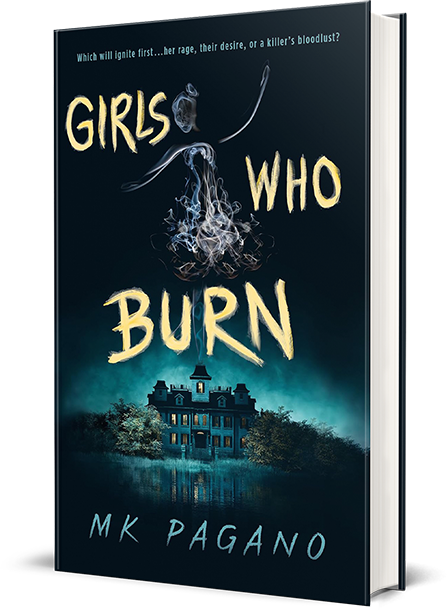On Editing: Three Tricks I’ve Learned
So I wrote a book. (In a sun-drenched field, on a typewriter. Isn’t that how you write, too?)
Then I rewrote it. Then I rewrote it again. And again. And again…
To save us all time: I spent a lot of time with this book. And I thought it was good. I truly believed I’d made it the best work it could be.
So I began querying. And getting entirely positive feedback from beta readers. Positive feedback from agents, even!
But it was always ultimately a no.
To keep from getting down–and also because it’s what I do–I started writing another novel. This one totally different. And it’s going well! (I think.) So it’s been a long time since I have even looked at my first novel–over six months. Before that, I’d spent nearly five years straight with the thing.
Recently my boyfriend surprised me by turning my 95,000 word manuscript into a bound book. (You can do that here.) He preferred to read it that way. So one day I picked it up and flipped through it.
And… it looked completely different.
I’d heard the advice to print out your work and look at it on physical paper before. I thought, “waste of paper!” It’s the same words, right?
Wrong.
The things is–I spent SO MUCH TIME with this manuscript. And that’s okay. It was the first book I ever attempted to write, and so I was essentially teaching myself how to write a book as I went. But by the time I was done, I could recite the entire manuscript by heart.
And when you can do that–you are so hopelessly lost among the trees it’s absolutely impossible to see the forest.
I thought I’d remedied this problem by having some trusted friends–and by trusted I meant, I trusted them to tell me the truth–read it and tell me if there was anything wrong with my book. I had ten beta readers. General consensus was “We love it! Don’t change a thing!”
Great!
And then I asked my boyfriend to read it.
His opinion differed slightly.
Maybe it’s because he’s an artist too. Maybe it’s because he can just shout across the apartment anytime he reads something he doesn’t like. Maybe it’s because he knows me better than anyone ever has. He is brutal.
But so far? He’s been spot-on about everything he’s found that’s wrong with it. So spot-on, I can’t believe I didn’t see it before.
The weird thing is, I’d argue and argue with him–then I’d go pick up the printed-out book and read over what he was talking about. He was almost always right.
A few things that were apparent to me that I didn’t notice before:
Be selective about your details. I had already described a homeless man, and he kept putting his hand in his “tattered” pocket. I already described his clothes; by now my reader knows that any pocket he has is tattered. Don’t be repetitive!
TOO MUCH EXPLAINING
“Why are there so many scenes of them driving back and forth to school?”
“Because they have to go to school, and they have to have a way to get there?”
“You don’t need to show it all the time. It’s boring.”
Point taken.
TOO MUCH BACKSTORY/INTERNAL MONOLOGUE
“Why does she spend so much time thinking about her dead brother?”
“It’s important to the story! You’ll see later!”
“Fine, but does she have to spend so much time thinking about him? Find a way to work it into conversation. The internal monologue is getting old.”
Okay, then.
Also remember readers don’t need to know too much right off the bat.
You must look at your work like it’s someone else’s, or you’ll be blind to all of this stuff.
So the best way to edit your own work?
1. Take a break from it. Longer than a month. I’d say give it at least 6 months, depending on how long you’ve been working on it. During that time, dive into something else. Something totally different (I went from a third-person, multiple-POV, past-tense magical realism historical fiction mystery to a first-person, single-POV, present-tense contemporary story). When you come back to your first story, it shouldn’t be so familiar anymore. Then you’re better able to see what’s wrong with it.
2. Look at it in a different way. In a different font, in a different color. Or better yet (sorry trees!) print it out. It’s helped me so much.
3. Ensure your beta readers are BRUTAL Ego-boosting kind readers are nice, but they don’t help you improve your story.
And a bonus fourth tip, which I thought I knew, but am having to put it into practice again:
4. “Kill your darlings, kill your darlings, even when it breaks your egocentric little scribbler’s heart, kill your darlings.”–Stephen King
It’s really hard to once more take a scalpel (or a circular saw) to my “perfect” novel. Killing my darlings really does break my heart. To be honest, I don’t actually “kill” my darlings. I cut and paste them into a document. I entitle this document “My Darlings”. And then I try and use those beautiful turns of phrase elsewhere.
Once I’m done with all of this, I will again begin querying. And I dare to say that this time, I may even get a bite.



Some very good points here, I don’t think I have the heart for half of them. I can’t leave a project for 6 months at a time. 🙁
6 months may be a little extreme, but I have so many ideas in my head I don’t find it that hard to dive into something else 🙂
Ha! That’s probably why you’re an author and I’m an accountant (eek) … I’m glad you tackled the subject. Its a tremendous help to non writers like myself.
I didn’t know about Lulu.com COOL!!!
Good points.
[…] 1. I’ve said it before but it bears repeating: print out your manuscript to edit it. It’s the secret to seeing the forest for the trees and it’s changed my life. […]
[…] done at the editing stage. Once your whole story is down on paper, go back to that beginning (after taking a break from the manuscript so you’re looking at it with fresh eyes) and ask yourself–if I were […]
[…] 3. Oh, and I FINISHED THE FIRST DRAFT OF MY SECOND NOVEL. Now I’m going to do what I didn’t do with my first novel which is put it away and try and forget about it for several months. And when I take it back out to edit it, I’ll be printing it out onto physical paper. […]
[…] the first book I ever wrote. After many years of debate, I’ve decided to definitively kill my darling of a prologue and start right away with the main […]
[…] my first novel, the only people I had reading and critiquing it were friends and family. Which was awesome for my ego–not so awesome for my […]
[…] next round of editing. Reading and rewriting the same thing over and over causes you to completely lose your objectivity. And objectivity is essential in editing. As Stephen King says, “It’s hard to kill your […]
[…] I’ve written about this before, but it bears repeating. […]
[…] And if you’re in the editing stage, here are some tricks I’ve learned… […]